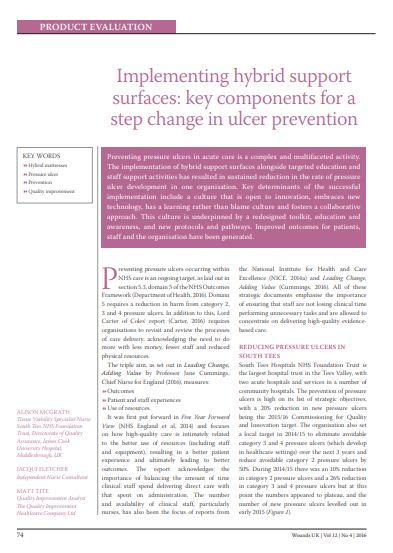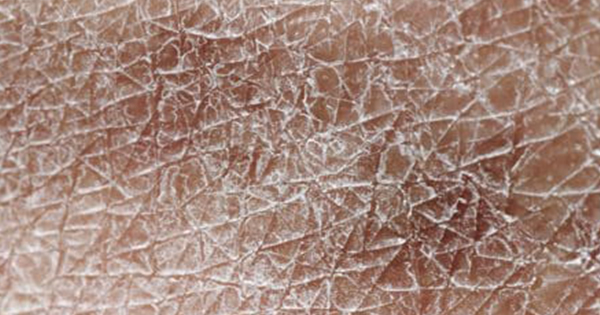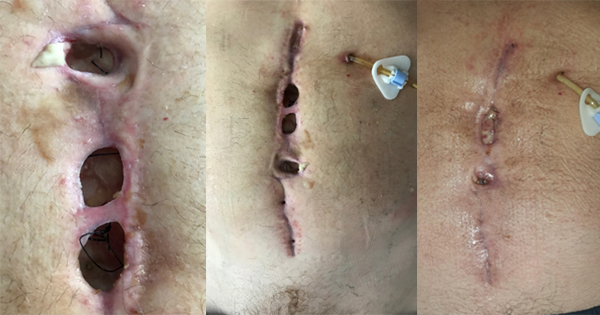Preventing pressure ulcers in acute care is a complex and multifaceted activity. The implementation of hybrid support surfaces alongside targeted education and staff support activities has resulted in sustained reduction in the rate of pressure ulcer development in one organisation. Key determinants of the successful implementation include a culture that is open to innovation, embraces new technology, has a learning rather than blame culture and fosters a collaborative approach. This culture is underpinned by a redesigned toolkit, education and awareness, and new protocols and pathways. Improved outcomes for patients, staff and the organisation have been generated.







